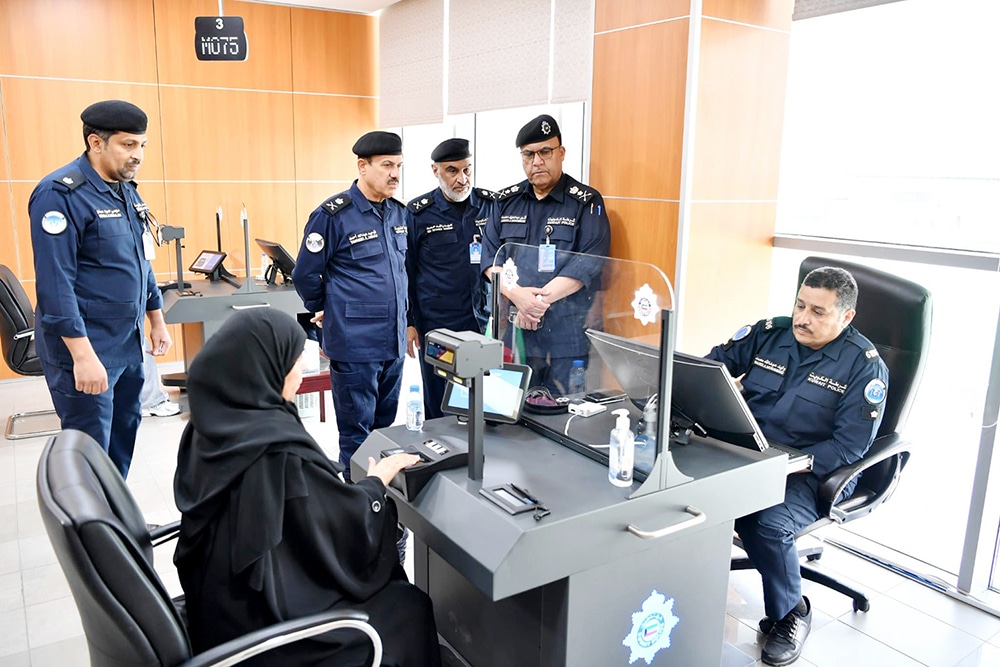KUWAIT: Secretary General of the Supreme Council for Planning and Development Dr Khaled Mahdi said on Wednesday that Kuwait is continuously seeking to overhaul legislations concerning expatriate workers with the aim to set up a “smart system” to regulate bringing in foreign workers. Mahdi, in a statement marking the launch of the 2023 World Development Report, indicated that mechanisms would be set up to test professional skills of the workers that would be allowed into the country.
Notions incorporated in the aspired strategy include specifying areas where the workers are highly needed, with priority for building a lucrative work environment for citizens, namely young Kuwaitis who should be employed in the private sector. A planned online platform will screen potential workers from abroad to ensure the newcomers are qualified to perform the job chosen for them.
“It does not make sense that a truck driver in his home country turns into an engineer in the host state,” Mahdi remarked sarcastically, alluding to some such cases. He called for establishing an agency for hiring the foreign expatriates in the private sector.
Member of the National Human Rights Diwan Dr Abdulredha Asiri said in a separate statement that the diwan advocates protecting rights of citizens and expatriates. Resident Representative of the World Bank in Kuwait Ghassan Al-Khojeh indicated that authorities of expatriates’ home countries should have well-studied systems to regulate the dispatch of laborers to work abroad.
The head of International Migration Organization in Kuwait Mazen Abulhessen said recommendations incorporated in the report are in harmony with the international convention for migration and the IMO strategy for the Gulf. Nisrin Rebaiaan, the representative of the UN High Commissioner for Refugees, said the World Bank “has invited us to be part of the consultative commission tasked with the recently issued report on migrants and refugees”. The recommendations in the report show how migrants can contribute to constructive and sustainable development in the host country, rather than turning into a burden for the community where they have chosen to work.
Meanwhile, informed sources said the interior ministry expects the number of expats to be deported this year to nearly double the number last year, which was 30,000, to reach more than 50,000. Sources said security efforts and continued inspection campaigns in expat-dominated areas will lead to an increase in arrests of those with expired residency permits, wanted people and absconders. All these are violations that warrant deportation, with deportees banned from entering the country again.
The sources said decisions issued by the interior ministry’s higher committee to remedy the population structure, the manpower authority and follow up by the Cabinet to implement the Kuwaitization policy will lead to the possibility of the number of residency violators rising. They said expats will not be given work permits in the private sector if their specialties are not technical and required in the market, in addition to limits on age. They said the government is again reviewing leaving the country as a condition to receiving indemnity payment, but this move requires studying legal aspects to avoid violating constitutional articles and court rulings.
Separately, an interior ministry official said on Wednesday biometrics scanning in Kuwait will help set up a databank of all individuals living in the country aged 18 and above. A press statement by the ministry’s public relations and security media department said Interior Ministry Undersecretary Lt Gen Anwar Al-Barjas said after his tour of biometric centers that the ministry would do its best to facilitate the process of registering biometric data of citizens and residents alike. There is no need to undergo the process prior to departure from Kuwait; however, biometric scanning is required upon arrival, he reiterated. — Agencies










